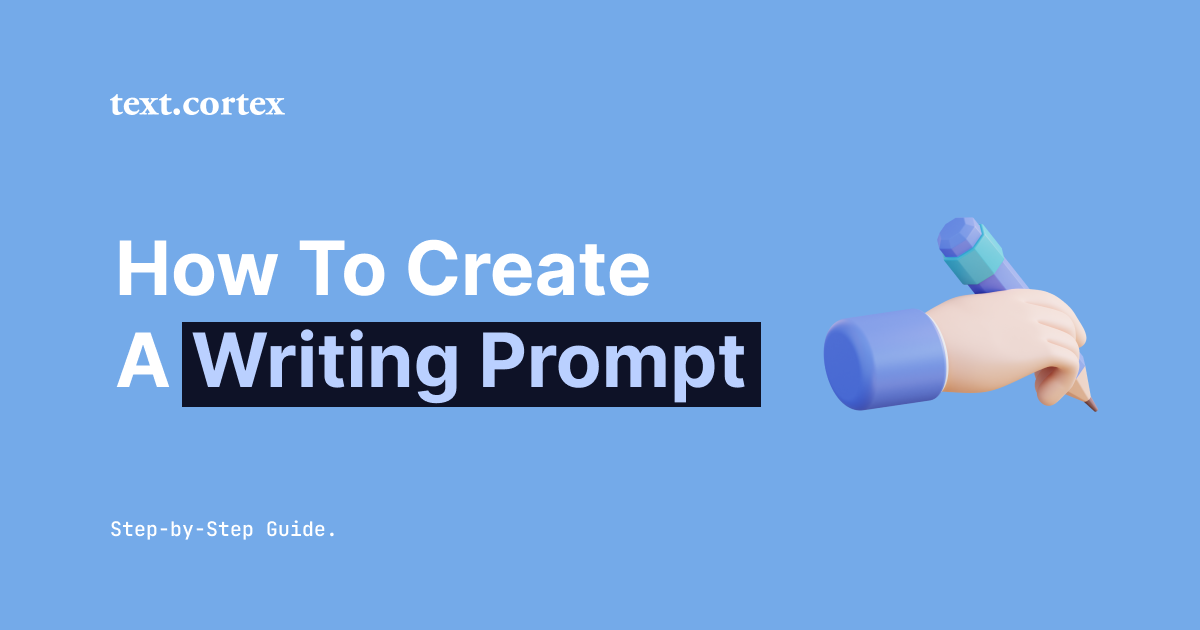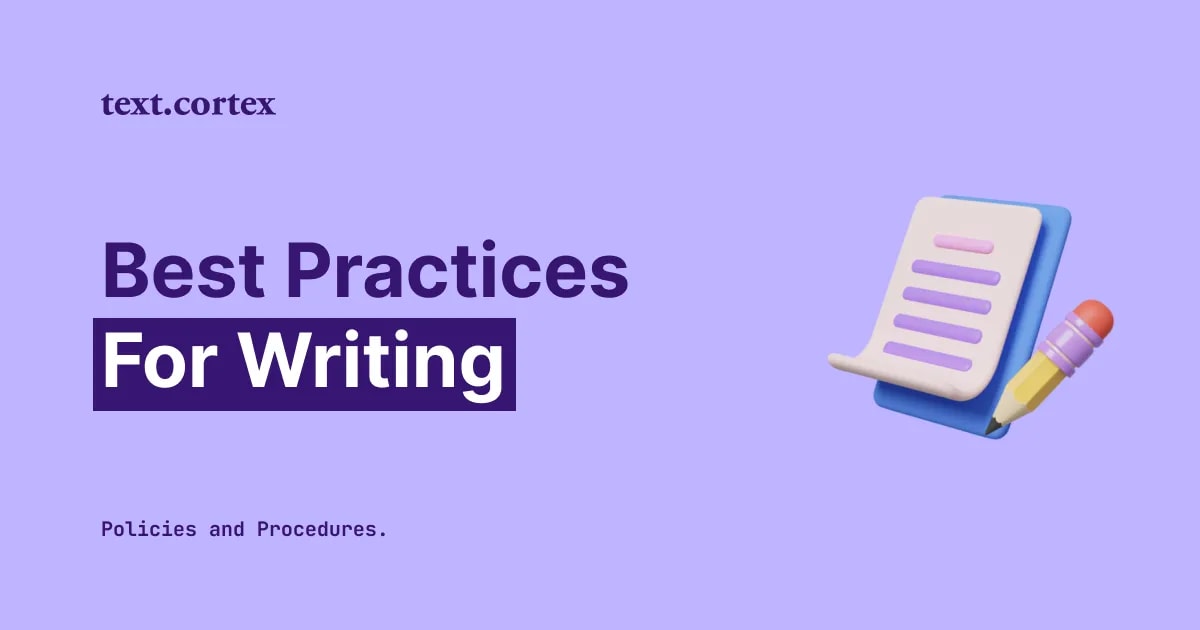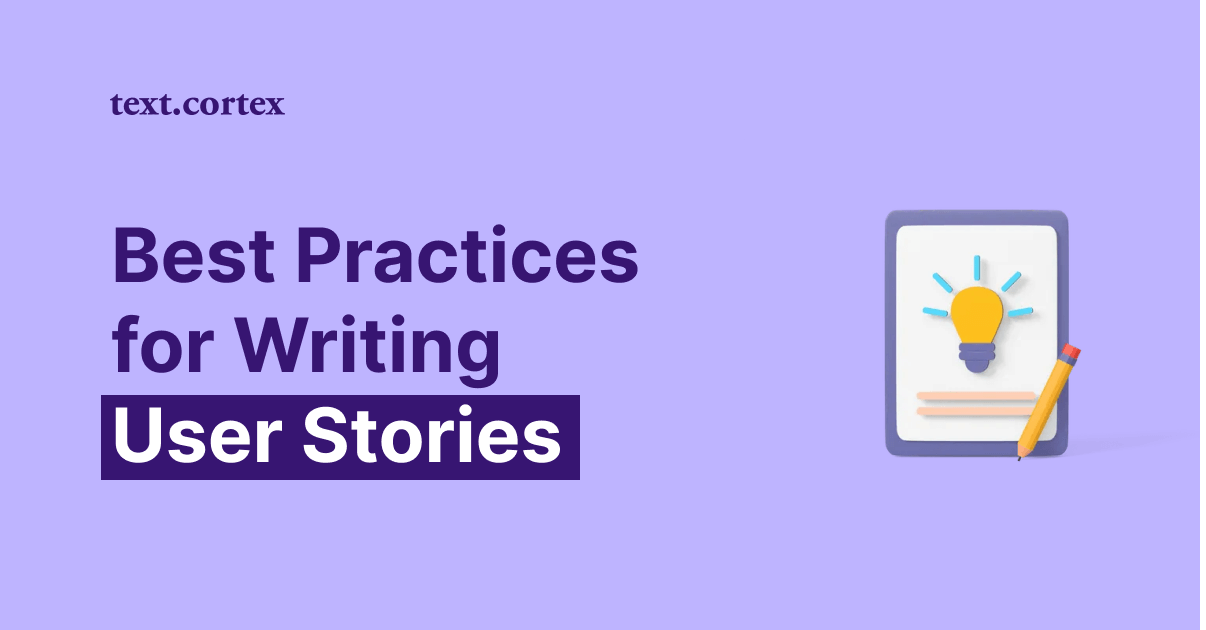Ever since the whole ChatGPT craze took off, everyone's been talking about one thing – prompts.
It turns out, nailing the right prompt is the secret sauce for having a great chat with AI.
Nevertheless, writing prompts have a history that started long before the AI tools came around.
So, we thought, why not explain what writing prompts are the types that exist, and help you whip up the best ones for your writing?
So, grab your cup of coffee, kick back, and let's dive into the beautiful world of prompts!
What is a Writing Prompt?
A writing prompt is a specific topic, idea, phrase, or question provided to writers as a creative starting point to inspire them and stimulate their writing.
Writing prompts are commonly used in various writing exercises, workshops, and creative writing classes to help writers overcome writer's block, generate new ideas, or simply get their creative juices flowing.
6 Types of Writing Prompts With Examples
The goal of a writing prompt is to encourage writers to think creatively, develop their writing skills, and produce original content.
The same goes for conversations with AI tools — the more straightforward the prompt, the more precise the answer you’ll get.
Furthermore, prompts can be particularly useful for individuals who are looking for ideas to write about, whether they are seasoned writers or beginners.
1. Single Words or Phrases
A writing prompt can be a single word (e.g., "candle," "freedom") or a short phrase (e.g., "lost in the woods," "a secret revealed") to build writing around.
📝Prompt: Eclipse
💡Writing Idea: Write a poem that captures the beauty and mystery of a solar eclipse.
2. Questions
Thought-provoking questions can be used to spark introspective or imaginative writing.
📝Prompt: What would you do if you could become invisible for a day?
💡Writing Idea: Craft a short story describing the adventures and moral dilemmas of a person who discovers the power of invisibility.
3. Images or Visual Prompts
Sometimes, a picture, painting, or photograph is provided as a prompt, and writers are asked to describe, interpret, or expand upon what they see.
📝Prompt: Show an image of an old, abandoned library with dust-covered books and cobwebs.
💡Writing Idea: Write a descriptive essay about the history and stories hidden within the abandoned library and the person who stumbles upon it.
4. Scenarios or Situations
Writers might be given a scenario or situation to explore, such as:
- "Write a story from the perspective of a character who just won the lottery", or
- "Describe a conversation between two people meeting for the first time."
📝Prompt: Write a dialogue between a young detective and an eccentric inventor who claims to have built a time machine.
💡Writing Idea: Create a dialogue that reveals the detective's skepticism and the inventor's earnest conviction about the time machine's capabilities.
5. Quotes or Excerpts
A quote from a famous author, philosopher, or historical figure can be used as a starting point for reflection or creative writing.
📝Prompt: "In three words I can sum up everything I've learned about life: it goes on." - Robert Frost
💡Writing Idea: Write a reflective essay on the meaning of this quote and how it relates to your own experiences.
6. Randomly Generated Words or Elements
Some prompts are generated randomly, such as generating 3 random words and asking writers to create a story or poem that incorporates them.
📝Prompt: Generate 3 random words - "Dragon," "Ice Cream," "Whisper."
💡Writing Idea: Craft a short story that involves a dragon who secretly enjoys eating ice cream and the child who discovers this unusual secret.
It's important to note that the examples we've provided as "writing ideas" can also serve as prompts.
In fact, anything that provides you with a focal point to steer your writing is essentially a writing prompt.
Now, let’s find out how to create a writing prompt on your own.
How to Create a Writing Prompt?
1. Define Your Purpose
Determine the purpose of your writing prompt.
Are you trying to spark creativity, inspire self-reflection, or generate a specific type of content?
If you define the goal of your content, it can help you create a more effective prompt.
2. Choose a Type of Prompt
Decide what type of writing prompt you want to create.
As mentioned previously, you can choose from single words, phrases, questions, images, scenarios, quotes, or random elements.
3. Consider Your Audience
Think about the intended audience for your writing prompt.
Are you creating it for yourself, a specific group of writers, or a more general audience?
Tailor the prompt to suit the needs and interests of your audience.
4. Be Clear and Concise
Keep your writing prompt clear and concise.
Avoid unnecessary complexity or ambiguity. A good prompt should provide enough direction to start but leave room for creativity.
5. Make It Thought-Provoking
The best prompts often challenge writers to think deeply or consider unusual perspectives. Thought-provoking prompts can lead to more engaging and creative responses.
6. Incorporate Specific Details
If your prompt includes specific details, it can help to set the scene or context for the writing.
For example, describe what's in the image if you're using an image prompt.
If it's a scenario prompt, provide relevant details about the situation.
7. Avoid Biased Language
Ensure your prompt doesn't impose your personal beliefs or values on the writer.
Prompts should be open-ended and inclusive.
8. Test Your Prompt
Before sharing your prompt with others, test it by writing a sample response yourself.
This can help you identify any issues or ambiguities in the prompt.
Write Your Prompts With TextCortex
TextCortex is your ultimate solution for crafting writing prompts and generating high-quality content effortlessly.
This AI-powered assistant is here to supercharge your writing tasks without sacrificing content excellence.
With TextCortex, you can efficiently tackle multiple writing challenges, ensuring you create engaging prompts with ease.
Here's how TextCortex can transform your writing experience:
🔗 User-Friendly — Access TextCortex through a web application or a handy Chrome extension, ensuring user-friendliness and accessibility.
🛠️ Versatile Assistance — TextCortex is designed to cater to all your text-related needs, making it the ideal tool for generating compelling writing prompts.
🧩 Seamless Integration — Our browser extension seamlessly blends with over 4000 webpages and apps, providing support whenever and wherever you need it.
✍️ Abondance of Writing Features — In addition to its conversational ZenoChat, TextCortex offers templates, a rewriting tool with 10+ functionalities, the ability to set up your unique writing persona, and much more.
🌍 Multilingual Support — TextCortex is proficient in generating text in over 25 languages, making it a global solution for crafting captivating writing prompts.
Watch our video to see it in action!
Interested to try it yourself?
Sign up now to experience the magic of TextCortex and revolutionize your content creation process.🧑🚀




